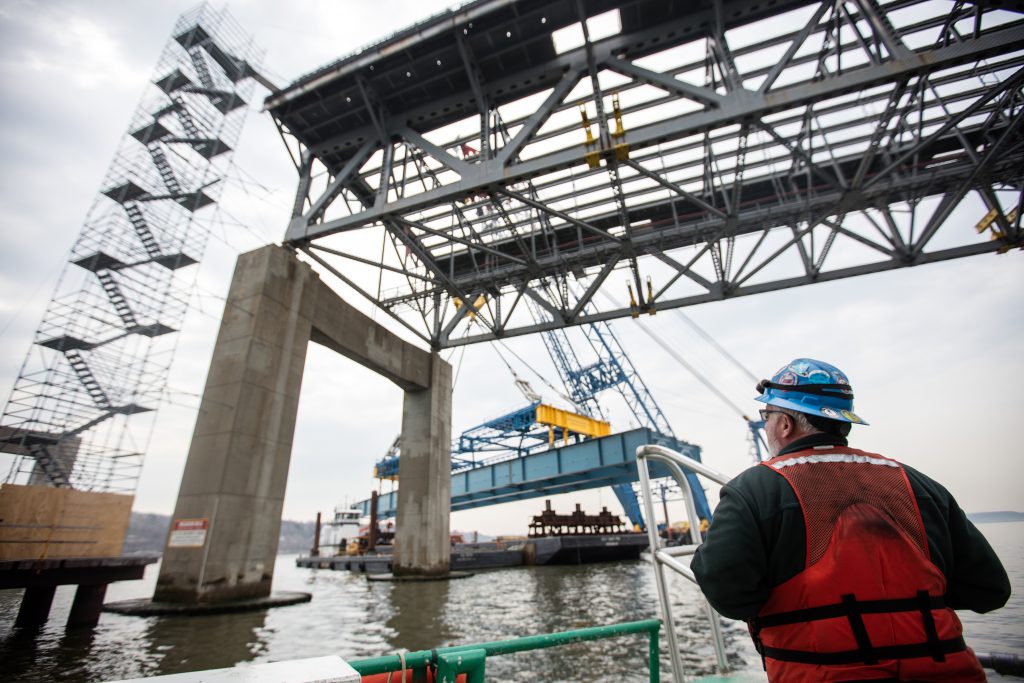
Speaker Nancy Pelosi could combine the bill with similar legislation.
After years of doing, well, nothing, there finally is movement on a major piece of legislation to rebuild America’s crumbling bridges, roads, public transit and railways.
The House Transportation and Infrastructure Committee worked into the night on Thursday to wrap-up the second day of work on the $500 billion INVEST in America Act. The measure now heads to the House floor, where Speaker Nancy Pelosi (D-Calif.) is considering combining it with other infrastructure legislation to create a mega $1.5 trillion package that would also modernize things like schools, broadband, clean water, and more.
Given that America’s infrastructure continues to fall apart – it has a D+ rating from the American Society of Civil Engineers – it is good to see real action on infrastructure on Capitol Hill. A major investment package also will create millions of jobs and provide a big boost to the economy at a critical time.
The Alliance for American Manufacturing team has followed the markup of the INVEST act closely. We wrote about several amendments that were added to the bill on Wednesday, but the panel added several additional amendments to the bill on Thursday that would have an impact on manufacturers and factory workers, which are listed below.
Ban on Chinese SOEs Expanded, Stops Two-Year Delay on Rail Cars and Buses
Congress passed the Transportation Infrastructure Vehicle Security Act (TIVSA) last year, which bans Chinese state-owned, controlled or subsidized companies (SOEs) from receiving taxpayer funds to build U.S. rail cars and buses. But that legislation included a two-year implementation delay. An amendment put forth by Rep. Sean Maloney (D-N.Y.) would remove that delay, and apply the ban more broadly to include companies even if they don’t have a manufacturing presence in the United States. It also applies the prohibition to all federally funded highway and rail projects. The panel adopted the measure in a 62-1 vote.
Companies Can’t Use “Bad Behavior” Goods
This amendment from Rep. Rick Crawford (R-Ark.) aims to ensure that companies bidding on Federal Transit Administration (FTA) projects do not use goods made with “bad behavior.” Bidders will need to certify, for example, that they won’t use goods found to contain stolen intellectual property; have violated trade laws, including by being dumped into the U.S. market or subsidized by a foreign government; come from a supplier that is sanctioned by the U.S. government; come from a SOE linked to a foreign military; and have prohibited telecommunications equipment from risky companies, such as Huawei. The amendment was adopted by voice vote.
Clarify TIVSA Grandfathering
Another TIVSA-related amendment, also put forth by Crawford, aims to ensure that the TIVSA law is consistently applied to all U.S. transit authorities for any future contracts. The FTA is currently allowing cities that have previously done business with CRRC – a Chinese state-owned maker of rail cars – to continue to do business with the SOE forever and without restrictions, which wasn’t the intent of the law. The amendment clarifies that only contracts awarded to CRRC before TIVSA was enacted will be grandfathered, not any future business. It was adopted by voice vote.
Broaden Buy America
Crawford put forth another amendment, which was adopted by voice vote, that broadens the application of Buy America and prohibits transit agencies who receive federal funding from buying rolling stock (a.k.a., rail cars and buses) that are not subject to the INVEST in America Act’s Buy America provisions.
Close the Buy America “End Product” Loophole
Crawford also put forth a measure to close a massive Buy America loophole that allows entire electrical, exhaust and major systems of a rolling stock vehicle to be considered American-made even when the materials and subcomponents are 100 percent foreign. The amendment was included in the final bill passed out of the committee.
Improve Definition of “High-Skilled Assembly” for Buy America
Current Buy America guidelines state that when federal money is used to buy transit vehicles, those vehicles must be assembled in the U.S., and the cost of the vehicle’s domestic components must be at least 70 percent of the total cost. For the first time ever, domestic assembly could be counted as part of domestic content. An amendment put forth by Rep. Conor Lamb (D-Pa.) and passed by unanimous consent improved the assembly provision by ensuring manufacturers aren’t able to game the system by allowing only those costs related to highly skilled labor to be included. In addition, because labor costs already are included in the cost of rolling stock components, the amendment aims to guard against the double counting of labor costs in both component valuation and final assembly.
Prohibited Telecom Certification
Crawford introduced this amendment to require FTA grant recipients to certify that no award funds are used to buy prohibited communications systems from companies like Huawei, ZTE Corporation, and other Chinese SOEs that present cybersecurity risks. This prohibition is already law – the amendment merely aims to make sure it is well-enforced. It was included in the final bill that is now headed to the House floor.
